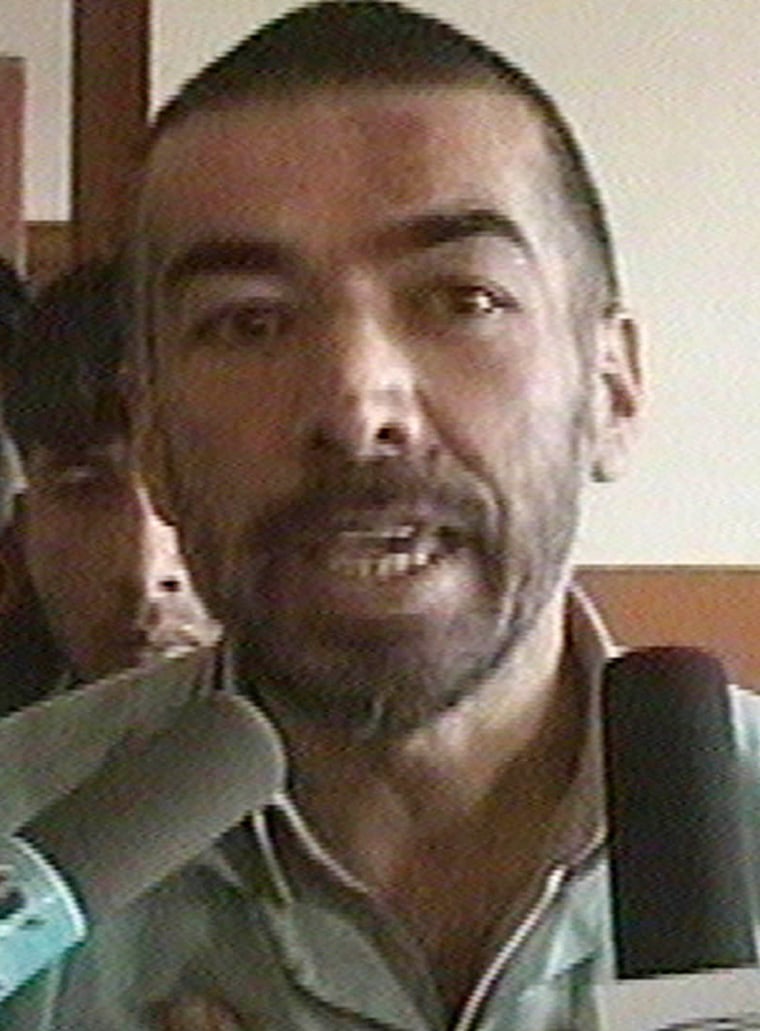Premier Silvio Berlusconi said Wednesday that Italy would be glad to give asylum to the Afghan man who faced the death penalty for converting from Islam to Christianity.
“I say that we are very glad to be able to welcome someone who has been so courageous,” Berlusconi said, when asked by Associated Press Television about the possibility of asylum for Abdul Rahman. The premier spoke ahead of a Cabinet meeting in which the government was widely expected to grant asylum.
Foreign Minister Gianfranco Fini had earlier expressed Italy’s “indignation” over the case and Pope Benedict XVI had appealed to Afghan President Hamid Karzai to protect Rahman.
Rahman, 41, was released from the high-security Policharki prison on the outskirts of the capital late Monday after a court dropped charges of apostasy against him for lack of evidence and suspected mental illness. Karzai had been under heavy international pressure to drop the case.
Muslim clerics condemned Rahman’s release, saying it was a “betrayal of Islam.” They threatened to incite violent protests.
On Tuesday, Afghan Justice Minister Mohammed Sarwar Danish said Rahman was staying at a “safe location” in Kabul.
Close ties with Italy
Italy has close ties with Afghanistan, whose former king, Mohammed Zaher Shah, was allowed to live with his family in exile in Rome for 30 years. The former royals returned to Kabul after the fall of the Taliban regime in 2001.
An Italian diplomat in Kabul, who spoke on condition of anonymity because of the sensitivity of the matter, said no one from the Italian mission had been in contact with Rahman, but they had been assured his health was all right.
The U.S. and Germany welcomed his release.
“Obviously it’s good news that he has been released,” White House press secretary Scott McClellan said.
Germany, a major donor with about 2,000 troops in the NATO security force in Afghanistan, also expressed satisfaction.
“I think this is a sensible signal to the international community but also for the situation in Afghanistan,” German Chancellor Angela Merkel said.
Rahman was put on trial last week for converting 16 years ago while he was a medical aid worker for an international Christian group helping Afghan refugees in Pakistan. He faced the death penalty under Afghanistan’s Islamic laws.
Rahman’s ordeal began as a custody dispute over his two daughters, now 13 and 14. The girls had been living with their grandparents their whole lives but Rahman sought custody when he returned to Afghanistan in 2002 after living in Germany for nine years. A custody battle ensued and the matter was taken to police.
During questioning, it emerged that Rahman was a Christian and was carrying a Bible. He was immediately arrested and charged.
The case caused an outcry in the United States and other nations that helped oust the hard-line Taliban regime in late 2001 and provide aid and military support for Karzai. President Bush and others had insisted Afghanistan protect personal beliefs. Secretary of State Condoleezza Rice called Karzai last week and appealed for a “favorable resolution” of the case.
Clerics united against Afghan
But the outrage put Karzai in a difficult position because he also risked offending religious sensibilities in Afghanistan, where senior Muslim clerics have been united in calling for Rahman to be executed.
“This is a betrayal of Islam and the entire Afghan nation by our government,” said Hamiddullah, a senior cleric in Kabul. “This will have very dangerous consequences for the government. Muslim leaders will react very strongly.”
A cleric in northern Kunduz town, Ubuiddullah, said, “We will protest this. We are very angry.”
However, a preacher in the northwestern Badghis province said the country’s religious leaders should not incite violence.
“Clerics shouldn’t be calling for people to riot and damage our country,” Mohammed Usman said.
On Monday, 700 clerics, students and others in the northern city of Mazar-e-Sharif protested Rahman’s acquittal a day earlier. The demonstration ended peacefully and there have been no rallies since.
